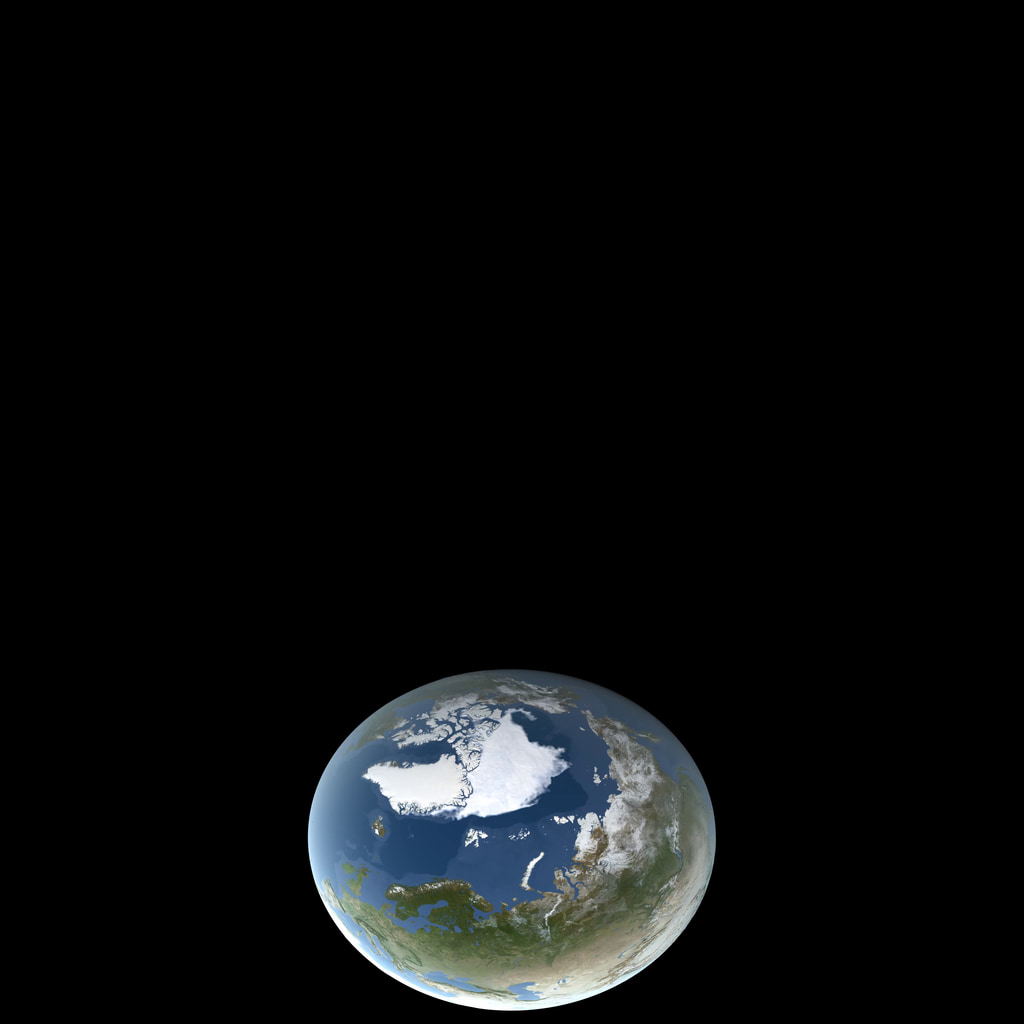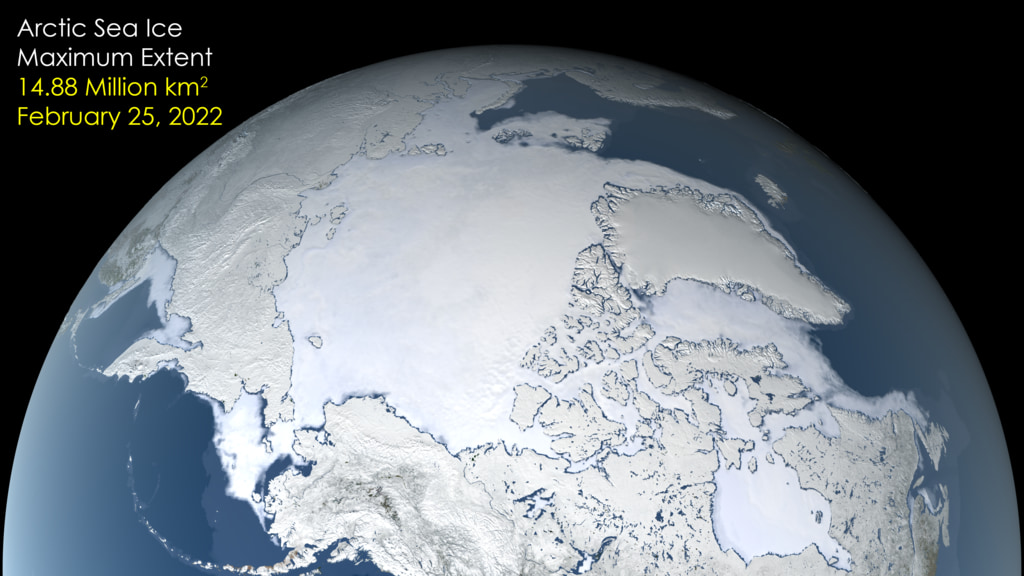Arctic Sea Ice Maximum 2023

Arctic sea ice maximum, March 6, 2023
After growing through the fall and winter, sea ice in the Arctic appears to have reached its annual maximum extent. The image above shows the ice extent—defined as the total area in which the ice concentration is at least 15 percent—at its 2023 maximum, which occurred on March 6. On this day the extent of the Arctic sea ice cover peaked at 14.62 million square kilometers (5.64 million square miles), making it the fifth lowest yearly maximum extent on record. This year’s maximum is 1.03 million sq km below the 1981-2010 average Arctic maximum of 15.65 million sq km. The trend in the maximum is -41,200 sq km per year or -2.6 % per decade relative to the 1981-201 average.
Animation of arctic sea ice from the September 18, 2022 minimum to the the March 6, 2023 maximum
Credits
Please give credit for this item to:
NASA's Scientific Visualization Studio
-
Visualizer
- Trent L. Schindler (USRA)
-
Producer
- Jefferson Beck (KBR Wyle Services, LLC)
Release date
This page was originally published on Wednesday, March 15, 2023.
This page was last updated on Wednesday, May 3, 2023 at 11:43 AM EDT.
Datasets used in this visualization
-
BMNG (Blue Marble: Next Generation) [Terra and Aqua: MODIS]
ID: 508Credit: The Blue Marble data is courtesy of Reto Stockli (NASA/GSFC).
This dataset can be found at: http://earthobservatory.nasa.gov/Newsroom/BlueMarble/
See all pages that use this dataset -
10 km Daily Sea Ice Concentration [SHIZUKU (GCOM-W1): AMSR2]
ID: 795Credit: AMSR2 data courtesy of the Japan Aerospace Exploration Agency (JAXA).
See all pages that use this dataset -
10 km Daily 89 GHz Brightness Temperature [SHIZUKU (GCOM-W1): AMSR2]
ID: 796Credit: AMSR2 data courtesy of the Japan Aerospace Exploration Agency (JAXA).
See all pages that use this dataset
Note: While we identify the data sets used in these visualizations, we do not store any further details, nor the data sets themselves on our site.



![Music: Ambience by Axel Coon [GEMA], Ralf Goebel [GEMA]](/vis/a010000/a013100/a013157/Max19_Thumb_print.jpg)
